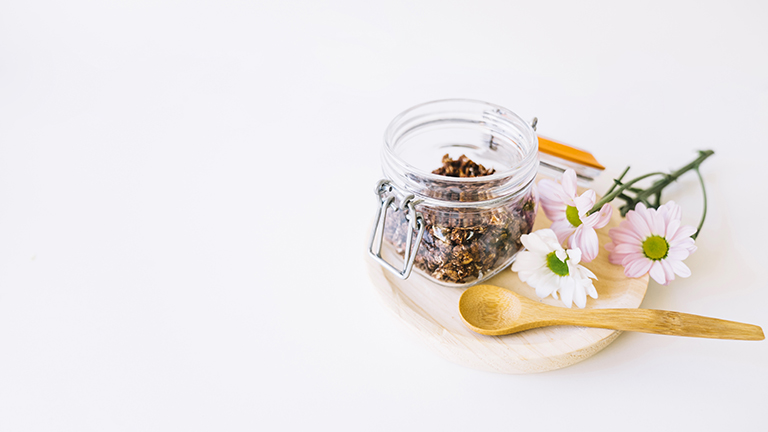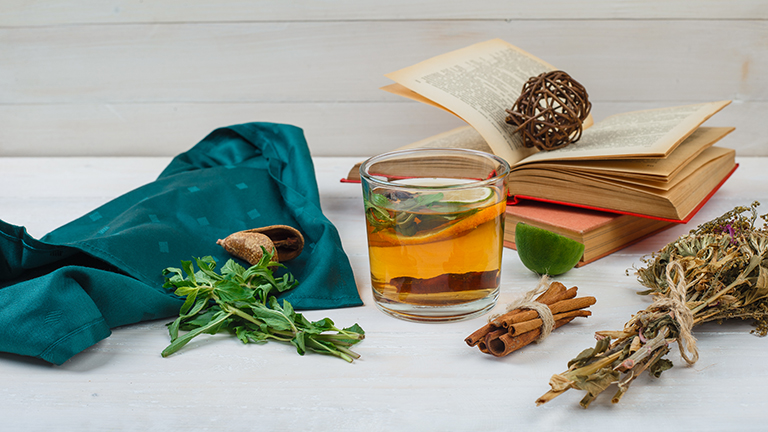Herbal Remedies for Cold and Flu Relief: Cold and flu are among the most common seasonal illnesses worldwide. According to the CDC, the average adult catches 2–3 colds per year, while the flu affects millions of people annually in the USA, UK, and Canada. While over-the-counter (OTC) medications may temporarily relieve symptoms, they often come with side effects and do not address long-term immune support.
This is where herbal remedies for cold and flu relief come in. Herbal medicine, rooted in traditional practices like Ayurveda, Traditional Chinese Medicine (TCM), and Native American healing, has been used for centuries to fight infections, strengthen immunity, and speed up recovery.
In this guide, we’ll explore the best herbs, teas, supplements, and natural remedies that can help you relieve cold and flu symptoms effectively — without relying solely on pharmaceuticals.
Best Herbal Remedies for Cold and Flu
1. Echinacea: Strengthening Immunity Naturally
- What it is: A popular herbal remedy derived from the purple coneflower.
- How it helps: Echinacea is known to reduce the severity and duration of colds by stimulating white blood cell activity.
- Scientific evidence: A 2015 meta-analysis found that echinacea can reduce the risk of recurring colds by 35%.
- How to use:
- Echinacea tea or tincture daily during flu season.
- Herbal supplements (capsules) for prevention.
Tip: Start echinacea at the first sign of symptoms for maximum effectiveness.
2. Elderberry Syrup: A Powerful Flu Fighter
- What it is: Elderberry (Sambucus nigra) is a fruit traditionally used for flu relief.
- Benefits:
- Reduces fever, congestion, and cough.
- Rich in antioxidants and vitamin C.
- Research: A 2016 study showed elderberry extract reduced flu symptoms 4 days earlier compared to placebo.
- How to use:
- Elderberry syrup (commonly available in the USA, UK, and Canada).
- Herbal lozenges or capsules.
3. Ginger: Natural Relief for Sore Throat and Nausea
- Why it works: Contains gingerol, an anti-inflammatory compound that soothes sore throats, reduces nausea, and warms the body.
- Best uses:
- Fresh ginger tea with lemon and honey.
- Adding grated ginger to soups for congestion relief.
Ginger also acts as a natural decongestant and helps with digestion during illness.
4. Garlic: Nature’s Antibiotic for Cold Relief
- Benefits:
- Contains allicin, a sulfur compound with strong antiviral and antibacterial properties.
- Helps fight infections and reduce severity of colds.
- Study highlight: A 2001 study found that people taking garlic supplements had 63% fewer colds compared to placebo.
- How to use:
- Raw garlic (crushed or chopped for allicin release).
- Garlic tea with honey.
- Garlic oil capsules for daily immune support.
5. Turmeric: Reducing Inflammation and Boosting Immunity
- What it does: Turmeric contains curcumin, a compound with anti-inflammatory and antiviral effects.
- Best ways to consume:
- Golden milk (turmeric latte with warm milk and black pepper for absorption).
- Turmeric tea with ginger.
- Turmeric capsules as supplements.
6. Peppermint Tea: Soothing Cough and Congestion
- Benefits:
- Menthol helps open airways and reduce congestion.
- Calms sore throats and headaches.
- How to use:
- Peppermint tea with honey.
- Inhalation of peppermint essential oil in steam therapy.
Herbal Teas and Infusions for Relief
Tea is one of the most effective ways to consume herbs during colds and flu.
Best Herbal Teas for Cold and Flu Symptoms
- Chamomile Tea: Relieves stress, improves sleep, and eases sore throats.
- Licorice Root Tea: Soothes cough and sore throat.
- Thyme Tea: Natural expectorant that clears mucus.
- Lemon Balm Tea: Calms anxiety and supports sleep during illness.
How to Prepare Herbal Infusions at Home
- Steep 1–2 tsp dried herbs in hot water for 10 minutes.
- Add honey and lemon for extra vitamin C and antibacterial benefits.
Boosting Immunity with Herbal Remedies
Daily Herbal Supplements for Flu Prevention
- Astragalus root: Widely used in TCM to boost immune defense.
- Ashwagandha: Adaptogen that reduces stress, improving immune balance.
- Reishi Mushroom (Ganoderma): Supports immune modulation.
Immune-Boosting Herbal Blends
- Herbal teas combining ginger, echinacea, and elderberry.
- Herbal tinctures with immune-supportive blends.
Home Remedies and Lifestyle Tips
Steam Inhalation with Herbal Oils
- Add eucalyptus or peppermint oil to hot water.
- Inhale steam to relieve sinus congestion.
Herbal Baths for Cold Relief
- Add chamomile, lavender, or eucalyptus to warm baths.
- Helps with body aches, relaxation, and sleep.
Healthy Diet + Herbal Remedies = Faster Recovery
- Stay hydrated with herbal teas and soups.
- Include immune-boosting foods: citrus fruits, leafy greens, yogurt, nuts, and seeds.
Safety and Precautions
- When to use herbal remedies vs. medical treatment:
- Herbal remedies work best for mild colds and early flu symptoms.
- Seek medical help if symptoms worsen (e.g., high fever, chest pain, persistent cough).
- Possible side effects of common herbs:
- Echinacea: May cause allergic reactions in some people.
- Elderberry: Raw berries are toxic, must be cooked/extracted.
- Garlic: Can thin blood, avoid before surgery.
- Peppermint: Avoid excessive amounts if you have acid reflux.
Global Use of Herbal Remedies for Cold and Flu
- USA & Canada: Popular use of echinacea, elderberry, ginger teas, and supplements.
- UK: Herbal remedies like echinacea, peppermint, and turmeric widely used in tea culture.
- Asia: Ginger, garlic, and turmeric are staple remedies in Ayurveda and TCM.
This shows that herbal remedies are trusted worldwide for effective cold and flu relief.
FAQs on Herbal Remedies for Cold and Flu
Q1: What is the fastest herbal remedy for cold relief?
Elderberry syrup and echinacea are among the most effective for speeding recovery.
Q2: Can herbal remedies prevent the flu?
They can strengthen immunity and reduce risk but should not replace vaccines.
Q3: Which herbal teas are best for sore throat?
Peppermint, licorice root, and chamomile teas are the most soothing.
Q4: Are herbal remedies safe for children?
Some (like elderberry syrup and chamomile tea) are safe, but always consult a pediatrician.
Q5: Can I combine herbal remedies with medicine?
Yes, but consult your doctor as herbs like garlic may interact with blood thinners.
Conclusion: Best Herbal Remedies for Cold and Flu Relief
Herbal remedies for cold and flu relief are safe, effective, and time-tested solutions that work by:
- Relieving symptoms naturally.
- Boosting immunity.
- Supporting faster recovery.
The best herbs to keep in your natural medicine cabinet include echinacea, elderberry, ginger, garlic, turmeric, and peppermint. Combined with herbal teas, proper diet, and lifestyle support, they can help you fight colds and flu naturally — and keep your immune system strong year-round.


